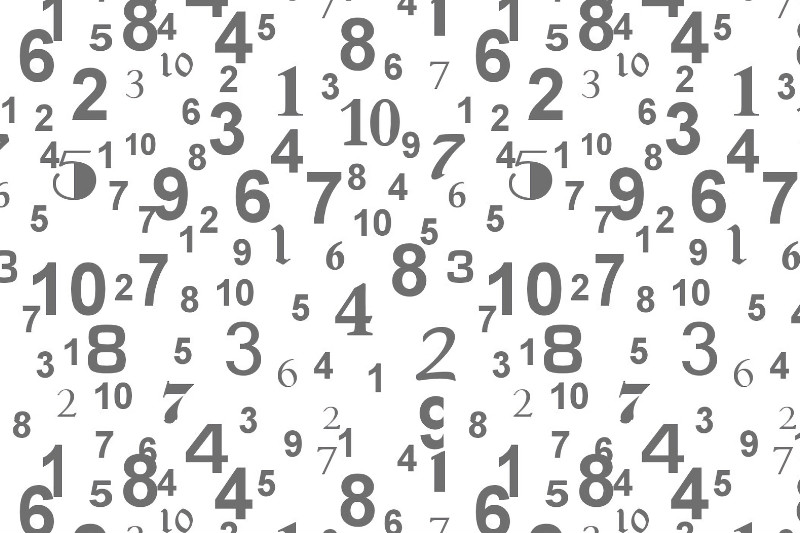Humans use math regularly, both intuitively and explicitly to solve problems in daily life. Whether purchasing wares, scheduling an event or balancing a checkbook, mathematics is an integral part of how humans understand the world. Take a minute to consider these interesting facts.

The number 3
Multiply any number by 3 and then add together the digits in the number to arrive at a single value. The answer is always 3, 6, or 9. Example, 12 times 3 equals 36, and if you add the digits, 3 plus 6 equals 9.
The number 9
There are nine players on a baseball team, and nine innings are played. Multiply any number by 9 and then add the digits from that number together to arrive at a single value. The new unique value will always be 9. Example, 2 times 9, the answer is 18, and if you add those number, 1 and 8, you get 9.
The number 5
The square of any number that has 5 as its final digit will always end with 25. Further, the numbers that proceed the 25 will always be the result of multiplying the value that proceeded 5 in the original number by a number that is 1 higher than it. For instance, the square of 25 is found by multiply 2 by 3 to get 6 and then to put the 6 in front of 25 to get 625.
The number 1
The square of a number in which all digits are 1 will always start and end with 1 and will always have one less figure than the original. The amount will always have an ascending sequence up to the middle and then a descending sequence after that. Example the square of 111 is 12321.
What’s unique about Pi (Π)?
Pi is called an irrational number because it has no repeating patterns, and you can’t represent it with a ratio of 2 integers (see facts about Pi). It is also called a transcendental number because it is not the root of a non-constant polynomial equation.
Mathematical operations
Mathematical operations are consistent regardless of the base system is used. Thus, using different bases such as binary, ternary, octal, and decimal always provides the same answers when the corresponding operators are used.
The number 11
Number 11 is immensely interesting to many societies and is associated with a great deal of symbolism and spirituality. In numerology, the number 11 is considered to be the master number because it carries a “vibrational frequency of balance.” It is often used to signify invention, vision, and refinement. To astrologers, the number 11 is considered to represent a balance of emotion, thought, and spirit.
The number 30
The number 30 is very significant to the Christian faith. It is the age at which Jesus begins his ministry, it is the number of silver pieces that Judas receives to betray Jesus to the leaders of the temple and it is the age at which Joseph leaves prison to govern the Jews in Egypt (see facts about Jesus Christ).
The number 13
Fear of the number thirteen is called triskaidekaphobia. There are thirteen people at Jesus’ last supper, and Apollo 13’s routine mission went terribly wrong. Hotels often skip the thirteen floor or room with the number 13 in them. In Formula One races, there is no car with the number thirteen.
The number 7
There are seven wonders of the ancient world, seven spots on a ladybug, and mammals have seven bones in their neck. Both the U.S. and Canadian phone numbers have seven digits without the area code. Seven is considered by many to be a lucky number. In Islam, there are seven heavens and seven hells. It is also the number of fires in hell and is also the number of doors to heaven and hell. Seven can also stand for the seven sorrows and seven joys of the virgin. There were seven last words (saying) of Jesus. There are seven deadly sins and seven heavenly virtues.
Numbers are everywhere
Numbers run our lives. We have our social security number, employee id numbers, and ATM pin number. Then there is your phone and cell phone number. You go to a butcher, the crowded motor vehicle office and you take a number and wait. Numbers govern our lives. Pay attention to the numbers on your car’s speedometer, or you will get a ticket. As you can see, numbers are everywhere.


